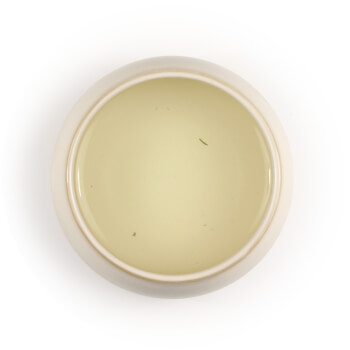95
tai ping hou kui
Based on 62 reviews
sample
May 2024 harvest
$6
1.5oz
May 2024 harvest
$19
sample
May 2023 harvest
Origin
Anhui, China
Farmer
Liang Yu Ming
Elevation
350m
Infusions
7

Tai Ping Hou Kui literally means "peaceful monkey leader" aka, Monkey King Green, and is grown at the foothill of Huangshan in the Anhui province. Its breathtaking elegantly long emerald leaves are hand-pressed, bringing forth a dry aroma of un-roasted chestnuts and light fruitiness. The liquor is light-bodied and delicate with nuances of nut, a touch of sweet grass, very subtle lily-of -the valley floral, and a whispery apricot note. This year's crop also offers a very soft note of grassiness and is a little more whispery. Listen closely!
Since the size of the leaves can make it cumbersome to brew this tea in a traditional method, the leaves may need to have the water poured over allowing them to melt down into the brewing vessel.
About the leaves:
Our Tai Ping Hou Kui is grown at 350 meters above sea level in Huangshan, Anhui. The leaves are from 9 to 12-year-old plants known as the Persimmon Big Leaf species and were harvested in early May. The local name for this tea is Tai Ping Jian Cha (Jian means points, cha means tea). The hand plucked tea goes through a process of pinching the point of the leaves after fixation. The main purpose of this step is rolling and shaping, which is done by hand in order to keep and retain more of the aroma and internal substances.
Since the size of the leaves can make it cumbersome to brew this tea in a traditional method, the leaves may need to have the water poured over allowing them to melt down into the brewing vessel.
About the leaves:
Our Tai Ping Hou Kui is grown at 350 meters above sea level in Huangshan, Anhui. The leaves are from 9 to 12-year-old plants known as the Persimmon Big Leaf species and were harvested in early May. The local name for this tea is Tai Ping Jian Cha (Jian means points, cha means tea). The hand plucked tea goes through a process of pinching the point of the leaves after fixation. The main purpose of this step is rolling and shaping, which is done by hand in order to keep and retain more of the aroma and internal substances.
This tea contains a medium level of caffeine | Steep at 170° for 2-3 minutes.
Customer Reviews (62)
Fresh From Origin
Originating in the Anhui Province, Tai Ping Hou Kui began being produced at the beginning of the 10th century. Renown for it "two knives and one pole" plucking (two straight leaves clasping the large bud with white hairs), the leaves are emerald green in appearance with notable red veins beneath and can be up to six inches in length.The characteristic woven pattern and intricate crisscrossing on the dry leaves are due to the unique process used to create them. After the pan firing, two leaves and a single bud are flatten between layers of cloth in a bamboo basket for another firing before being laid out to cool. Orchids also grow wild among the tea plants, which is believed to be the source of the intoxicating fragrance.
It is said that the spirit of a monkey resides in this tea growing region and that the compassion of a tea farmer shown to the monkey was repaid with wonderful and unique tea. Or perhaps it is the remarkable growth and processing techniques. Either way, the final product is a tea which is classified as a Tribute Tea in China and enjoyed around the world.
Free Sample Offer
If you buy this tea from another vendor, we invite you to try a free sample. Simply email a receipt showing an earlier purchase of the "tai ping hou kui" tea to masters@adagio.com and we'll mail you a free sample of this tea to compare. We're convinced that you'll be impressed with its quality and value.Liang Yu Ming

How long have you been growing tea and what got your started?
I have worked with tea for more than 25 years. I was born in a tea town and most people here work with tea. I started working with tea after graduation from high school.
Can you describe a typical day out in the field?
I go out every day at 8. This is a mountain area, so I need to climb mountains and pick up tea leaves. I will finish working around 4pm.
What is your favorite part of growing tea?
I love the fresh tea smell while plucking. I am very happy to get paid every day after delivering my fresh tea leaves to the primary factory. I can also buy a little delicious finished tea to drink.
Conversely, what is the hardest part of your job?
I need to climb the mountain to pluck tea leaves. Sometime it is hard for me because my legs are not good anymore. I hope I can still work for several years before I retire.
Are there any tips you can give on how to best brew your tea?
Please use a high glass to brew the beautiful tai pin hou kui. The temperature should be about 80-85 degrees celsius . When you pour the hot water into the glass, you can see the tea leaves dancing up and down in the glass. It is very enjoyable.

